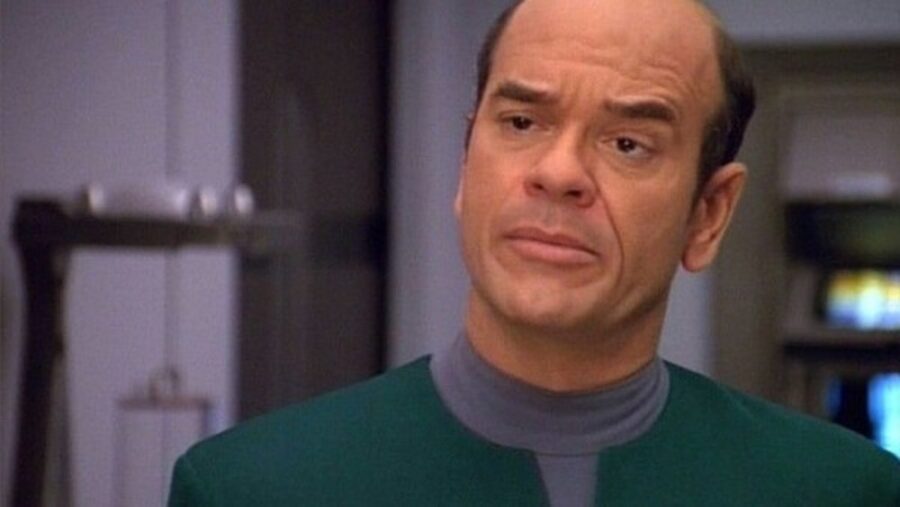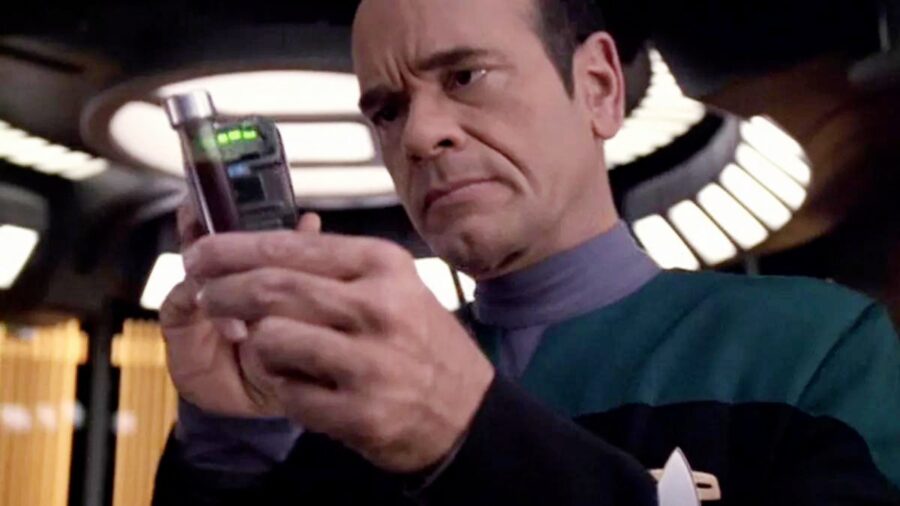Star Trek’s Best Doctor Was Hired For Making A McCoy Joke Without Knowing It
Robert Picardo, who played The Doctor on Star Trek: Voyager, ad-libbed a line in his audition that was an unintentional callback to the original series.

Star Trek: Voyager‘s Robert Picardo got his role as The Doctor in part because he improvised a line that he didn’t realize was a direct mimic of one of Dr. McCoy’s most famous sayings: “I’m a doctor, not a _____.” In an interview with StarTrek.com, Picardo discussed his tenure on Voyager, a series which has gained a lot more attention lately with an upcoming documentary, a possible revival series, and the return of Jeri Ryan as Seven in Star Trek: Picard, plus Kate Mulgrew as Hologram Janeway in Star Trek: Prodigy. Amazingly, not only did Picardo make the perfect callback to the Original Series, but he didn’t even realize he’d done it.
Back in 1994, a new Star Trek series was in the works and Robert Picardo was sent an audition for its doctor character, which he initially turned down, instead opting to read for the character of Neelix. He didn’t get the alien role, which ultimately went to his longtime friend, Ethan Phillips, but he did go back to read for The Doctor, who is an EMH (Emergency Medical Hologram) forced to become the full-time physician for the USS Voyager, stranded in the Delta Quadrant.
The scene directly addressed the character’s technological nature with its closing line, but it also left an opening for an ad lib from Picardo that might have landed him the role.
For his second Star Trek audition, Robert Picardo was given a scene that had only nine lines and ended with The Doctor becoming annoyed that his program was left running after everyone left the room. The last line of the scene as written in the script was, “I believe someone has failed to terminate my program,” but the actor then quipped, “I’m a doctor, not a nightlight.”
Ad-libbing is not standard practice in an audition setting, but the line received a huge laugh and Picardo received a call the next day that he had landed the role, having been cast at warp speed.
Though his Star Trek knowledge might have been lacking, Robert Picardo’s comic timing and quick thinking were perfect for The Doctor who, though he was cranky and easily irritated, was also meant to be funny and eventually likable. The “I’m a doctor, not a ____” line goes back to Dr. McCoy’s line in the classic episode “The Corbomite Maneuver” from the original Star Trek series.
Having been chastised by Kirk for finishing the captain’s physical before letting him know he was wanted on the bridge, he shouts after the exiting commanding officer, “What am I, a doctor or a moon shuttle conductor?”
After that, Star Trek writers began giving similar lines to McCoy, which Robert Picardo didn’t know when he auditioned. By the end of the first series, McCoy was not an escalator, magician, psychiatrist, bricklayer, and more as the gag showed up almost as often as his most famous line, “He’s dead.” The line had gone un-uttered onscreen since the 1974 Animated Series episode “Albatross,” when McCoy said, “I’m a doctor, Spock, a doctor,” until Picardo’s improvisation brought it back.

And Star Trek: Voyager‘s producers and writers must have been inspired by Robert Picardo’s unintentional joke. Starting in the Season 1 Voyager episode “The Phage,” the McCoy callback became a favorite of The Doctor’s, with his uses of the gag exceeding those of his predecessor, ultimately using 10 versions of the “not a” line and declaring himself a doctor another six. After seven seasons, he had declared himself not a decorator, Romulan, battery, counterinsurgent, and more.
So, Star Trek history was changed by Robert Picardo’s one ad-libbed line, both by returning the phrase to regular on-screen parlance and by possibly sealing the deal to get Picardo the role. As the actor notes in his interview, his learning curve continued, having to figure out not only his character but how a hologram worked and figuring out Star Trek itself. But his work—and his unwitting callback—paid off in giving us one of Star Trek’s best doctors.












